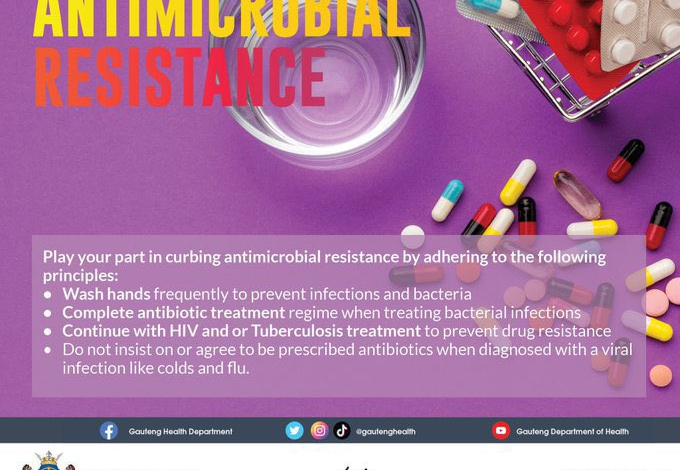How Gauteng Keeps TB Treatment Stocked Despite Global Supply Issues

The challenge of maintaining an uninterrupted supply of tuberculosis (TB) medications is one faced by many healthcare systems worldwide, including South Africa. Global pharmaceutical shortages, supply chain disruptions, and rising demand for critical medicines have tested the resilience of health departments. However, Gauteng has successfully navigated these obstacles. This ensures that essential TB treatments remain accessible to those who need them.
ALSO READ: Women in Gauteng Emergency Services Honoured for Bravery and Leadership
Table of contents
- The Significance of TB Treatment in Gauteng
- Overcoming Global Supply Chain Challenges
- Strategic Stock Management and Forecasting
- Contingency Plans for Medicine Shortages
- Local Manufacturing and Partnerships
- Monitoring and Addressing Local Challenges
- Ensuring Access to Treatment for Vulnerable Populations
- Strengthening Resilience
The Significance of TB Treatment in Gauteng
Tuberculosis remains one of the leading causes of illness and death in South Africa. The country ranks among the highest globally for TB prevalence, with millions of people living with the disease. In Gauteng, which includes the economic hub of Johannesburg and the administrative capital Pretoria, the demand for TB treatment is particularly high. This is due to its dense population and urban setting.
To tackle the challenge of TB, the province’s health department has prioritized consistent access to TB medication. This is essential for curbing the spread of the disease. Without timely and effective treatment, TB can lead to severe complications and increased transmission rates within communities.
Overcoming Global Supply Chain Challenges
The COVID-19 pandemic exacerbated global supply chain issues, including delays and shortages of essential medicines. Key TB treatments such as rifampicin and isoniazid experienced significant disruption in supply, impacting countries worldwide. However, Gauteng has implemented a series of measures to ensure that its TB treatment stocks remain robust despite these global challenges.
One of the primary strategies has been strengthening relationships with multiple suppliers to reduce dependence on any single source. This diversity in suppliers allows the provincial health department to mitigate the risk of stockouts by having alternative sources for critical TB medications.
Strategic Stock Management and Forecasting
Gauteng’s ability to maintain high availability of essential medicines, including those for TB, can be attributed to effective stock management practices. The Gauteng Department of Health (GDoH) has invested in advanced forecasting and inventory management systems. These help predict demand and adjust stock levels accordingly. This proactive approach ensures that TB medications are ordered in advance and stored in sufficient quantities to meet the needs of the province’s healthcare facilities.
Moreover, Gauteng’s medical supplies depot, which oversees the distribution of medicines to hospitals and clinics, plays a crucial role in maintaining optimal stock levels. Regular audits and checks ensure that medicines are distributed efficiently and that there is no wastage.
Contingency Plans for Medicine Shortages
In the event of a supply disruption, Gauteng has developed contingency plans that allow for quick adaptation. The health department has worked closely with the National Department of Health and international organizations to identify and source therapeutic alternatives when standard TB medications are unavailable. This has included expanding the range of available treatments and securing access to new drugs or generics.
These contingency measures ensure that treatment can continue without interruption, even in the face of global pharmaceutical shortages. Additionally, the health department regularly engages with stakeholders to monitor global supply trends, allowing for timely adjustments to procurement strategies.
Local Manufacturing and Partnerships
Gauteng has also taken steps to reduce its reliance on imported medicines by promoting local manufacturing. By encouraging South African pharmaceutical companies to produce more TB medications locally, the province can better control the supply chain. This reduction in dependence helps lessen the impact of international disruptions.
Public-private partnerships have played a significant role in this effort. Collaboration between government agencies, local pharmaceutical manufacturers, and international donors has been key. These partnerships have helped secure the continued availability of essential medications. They also foster innovation in the production and distribution of TB treatments.
Monitoring and Addressing Local Challenges
While global supply chain issues pose significant challenges, Gauteng’s health system also contends with local factors that affect the availability and distribution of TB treatments. These include issues like transportation delays, logistical bottlenecks, and administrative inefficiencies. However, Gauteng’s health department has focused on enhancing local delivery systems to address these challenges.
To streamline operations, the province has introduced digital systems for tracking patient data and medicine distribution. These innovations help identify areas where supply shortages may occur. This allows for swift interventions and ensures that TB treatment is consistently available at the point of care.
Ensuring Access to Treatment for Vulnerable Populations
One of the key concerns for Gauteng’s health system is ensuring that vulnerable populations, including those living in informal settlements and rural areas, have consistent access to TB treatment. The provincial government has invested in mobile health units and outreach programs that bring healthcare services, including TB care, directly to underserved communities.
These initiatives are particularly important in areas where access to healthcare facilities is limited. People may not be able to travel long distances to receive treatment. Mobile units are equipped with the necessary medications, allowing healthcare workers to monitor and manage TB treatment in real-time.

Strengthening Resilience
Looking ahead, Gauteng is committed to further strengthening its resilience against supply chain disruptions. By continuing to build on its existing partnerships, invest in local manufacturing, and refine its forecasting and inventory management systems, the province aims to create a sustainable framework for TB treatment availability.
With continued innovation and commitment, Gauteng will remain a leader in managing tuberculosis. This ensures that those who need treatment receive it without interruption. Through these efforts, the province not only addresses the current challenges but also paves the way for a future where TB treatment is more accessible and secure for all.



